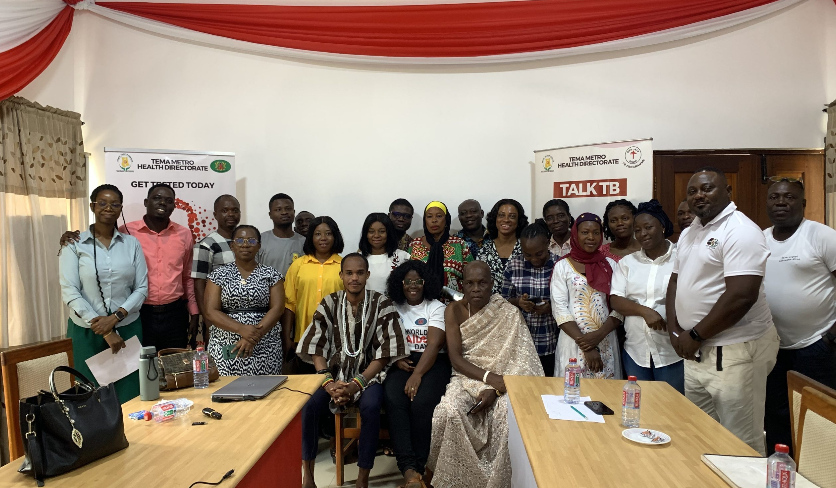The Tema Metropolitan Health Directorate has convened a joint review meeting to assess progress and refine strategies in the fight against tuberculosis (TB) and human immunodeficiency virus (HIV) within the metropolis. The gathering brought together health officials, programme coordinators, and key stakeholders to evaluate interventions, share best practices, and identify persistent gaps in service delivery.
Opening the review, Madam Joanna Anorkor Lartey, the Tema Metro TB and HIV Coordinator, spok of the close relationship between the two diseases, describing them as “inseparable” and “like twins,” warning that “where TB is, when you don’t take care, you will meet HIV and vice versa”. She reported that the metro had made notable strides in case detection and treatment.
In 2023, 70 people were screened, all of whom were linked to care, including 23 who tested HIV-positive. By mid-2025, 197 cases had been recorded, with 194 successfully linked to care. Testing and counselling coverage remained consistently high, standing at 99 per cent in 2023, 95 per cent in 2024, and 98 per cent in the first half of 2025.
Madam Lartey highlighted innovations in paediatric TB diagnosis, noting that young children often cannot produce sputum samples, prompting the adoption of stool samples for testing. She also confirmed that commodity shortages, which had disrupted services in the previous year, were resolved in 2025, though logistical challenges persisted.

One pressing issue is the transportation of viral load samples to Korle-Bu Teaching Hospital, which she described as “very painful” when delays prevent timely results. “We are appealing to anyone who can provide vehicles to assist with conveying these samples,” she urged. The coordinator stressed the importance of holistic patient support, extending beyond financial aid to include psychological care, encouragement, and consistent linkage to treatment. She advocated for a “one-stop shop” service model to reduce stigma and improve patient comfort, questioning the need to refer patients elsewhere if they already feel at ease in a given facility.
Dr. Irene Adu, Head of Pharmacy at the Manhean Polyclinic, reinforced the value of regular HIV programme reviews, urging participants to “look beyond statistics” and “see these as people” to fully grasp the scale of the challenge. She emphasised the need for robust paediatric HIV care, calling on providers to test children of HIV-positive mothers and ensure they remain in treatment. Dr. Adu also recommended expanding Provider-Initiated Testing and Counselling (PITC) in high-yield areas such as emergency units, TB and sexually transmitted infection clinics, reproductive health centres, and antenatal clinics.
Her remarks extended to the sensitive issue of disclosure, stressing that carriers should be supported and that disclosure of illness to patients’ spouses must be handled strategically to prevent further transmission while maintaining family stability. She also pointed to ongoing challenges in ensuring data quality—accuracy, completeness, and timeliness—which are essential for effective programme monitoring. Public education, she argued, must be intensified to encourage more people to know their HIV status.
The review concluded with a shared commitment to strengthening coordination between facility-level programme coordinators and the metro directorate, securing funding for monitoring and supervision, and ensuring that essential commodities remain available through close collaboration with regional medical stores. By combining technical improvements with patient-centred approaches, the Tema Metro Health Directorate aims to sustain its gains and close the remaining gaps in TB and HIV prevention, diagnosis, and care.
Source: Tema Metro Health Directorate holds TB/HIV review meeting | Ghana News Agency


